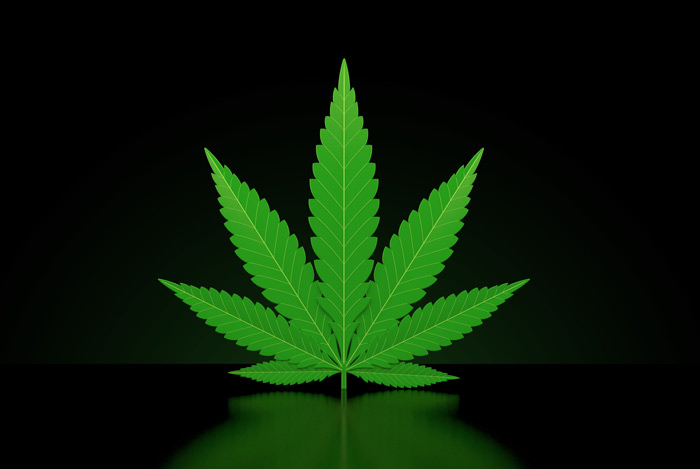Marijuana & a Major Shift
Arguably, no drug has undergone a greater change in its public perception over the last two decades than marijuana. In the mid-20th century, the drug was the subject of several films intended to warn parents and kids of the grave dangers of smoking pot. These films make for amusing viewing now, but they were made in earnest. The prevailing opinion was that marijuana was a danger to individuals and to society as a whole.
Here in the present, however, it is easy to see that there has been a major shift in how we think about marijuana. After all, even the U.S. House of Representatives has passed a bill to decriminalize the drug at the federal level.
Marijuana Use Disorder in Missouri
The bill in the House is a big deal (though we certainly should note that the bill has not been taken up by the Senate and is still a long way from becoming law), but you don’t have to look to the federal government to see the kinds of changes we are talking about. Here in Missouri, changes in marijuana laws have been significant.
In 2014, legislation was approved in Missouri that decriminalized the possession of 10 grams or less of cannabis (another name for marijuana). In these small amounts, possession is punishable only by a fine rather than by jail time. You can, however, still face jail time if you possess more than 10 grams.
In 2018, Missouri voters approved Amendment 2, which established a medical marijuana program in the state.
While to date the state has not joined the many other states that have legalized marijuana, Missouri can surely be counted among the places in the United States where attitudes about the drug are a far cry from what they were in the past.
Given these changes in perception and laws, what should we conclude about marijuana? Is it reasonable to conclude that marijuana is without risk and can be used without fear of negative consequences?
Well, it isn’t quite as simple as that.
The Example of Alcohol
Alcohol is another drug that underwent a major shift in public perception. From 1920 to 1933, the production, importation, transportation, and sale of alcoholic beverages was not just illegal: it was prohibited by an amendment to the U.S. Constitution. That’s about as far on the outs as you can be in this country.
Of course, another amendment ended the period known as Prohibition. Now alcohol is legal throughout the United States. But no one would seriously argue that the legality of alcohol means that the drug is wholly safe. Indeed, alcoholism is an ongoing problem in the U.S. and plenty of negative outcomes—from deadly car accidents to broken relationships to lost jobs and much more—are directly connected to the misuse of alcohol.
Marijuana—whether legal or illegal in any given state—also has the potential to lead to a range of negative outcomes.
Clearing the Smoke Around Marijuana
Despite the fact that cannabis use does not appear to lead to the development of dangerous physical addictions—that kind associated with many other drugs—it can still be problematic. Some users may even develop a marijuana use disorder.
We know this because regular marijuana users are subject to withdrawal symptoms if they stop ingesting the drug. These withdrawal symptoms are a result of changes in the brain due to an ongoing supply of THC—that part of marijuana responsible for the high the drug produces. If the brain is deprived of THC, it will let a person know in no uncertain terms that it would prefer you keep using marijuana.
Marijuana Use Disorder withdrawal symptoms may include:
- Cravings for marijuana that can be seemingly impossible to resist
- Mood changes, including increased irritability
- A significantly reduced appetite and various stomach issues
- Headaches, sweating, and chills (possibly including cold sweats)
- Increased difficulty focusing
- Trouble sleeping
- A marked increase in symptoms of depression
Considerations When Quitting Cannabis
If you have been using marijuana and have decided to quit, there are a few things you should keep in mind. First, while withdrawal from cannabis can be fairly brief and reasonably manageable, some people—perhaps you among them—would benefit from talking over their marijuana use with a physician or therapist before giving up the drug. Doing so gives you an opportunity to learn about strategies that might limit your difficulties with withdrawal symptoms.
However, sometimes a more robust approach is necessary in order to achieve lasting success in your efforts to leave marijuana behind. For example, you may have a co-occurring mental health disorder that has contributed to your decision to use marijuana in the first place. If you struggle with depression, a trauma-induced disorder, or ongoing anxiety, there is a pretty good chance you have been using cannabis, at least in part, to self-medicate. As a result, it is extremely important that you seek care for your mental health challenges.
It is also possible that marijuana has served as a gateway drug to other, more dangerous substances. Or perhaps you have developed a drinking issue in addition to your cannabis use. If either of those things are the case, your best options are likely to be a focused outpatient program or a residential program that includes detoxification and rehabilitation. Group and individual therapy will be part of inpatient treatment, providing an excellent opportunity to tackle issues related to substance use and to mental health.
We Are Focused on You
With the ongoing changes around marijuana laws, it can be easy to forget that each and every marijuana user is an individual with a unique story. At The Aviary Recovery Center, we always keep that in the forefront of our approach to treatment. We will take the time to listen and to personalize a treatment program just for you.
(314) 464-0222. We’re here to help.










